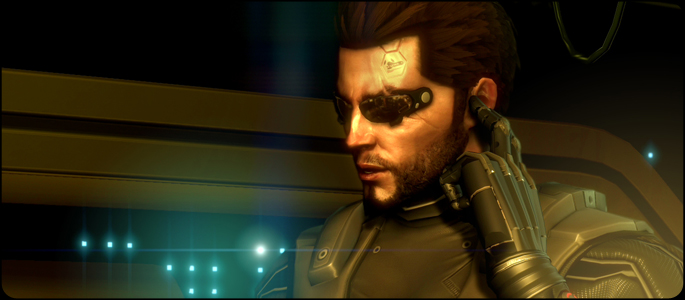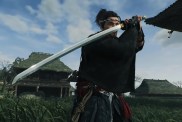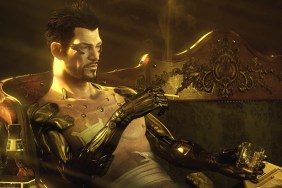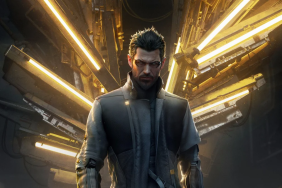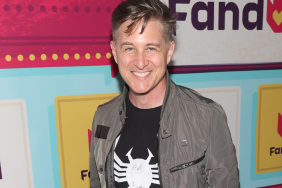Deus Ex: Human Revolution finally released this week, and judging by reviews it will be a contender for many awards come the end of the year. Just prior to the game’s release we had a chance to talk to the Producer over at Eidos Montréal, David Anfossi, about the creation process of a game with such a lengthy development cycle.
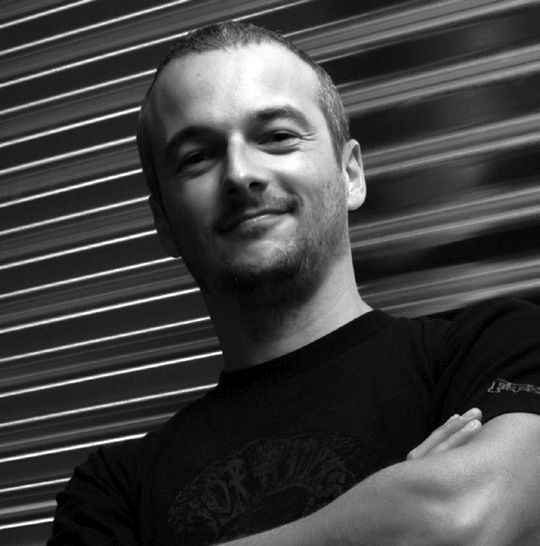
How eager are you to see how Deus Ex fans will react to the game?
Based on the reviews [that we already have], feedback is very positive. So I’m pretty sure the fans will be pleased with the experience, in the sense that we respected the franchise, the mechanics of the game…I have no doubt about that. We did more than 15 playtests.
Anything you wish you could have spent more time on?
A lot! A lot of things, but you know at some point you have to close production. During the four years we used to produce the game, different technologies evolved during this time. Technology we could have used for this game, but it was too late. Because we were too advanced [in development] at this time. A lot of things that we can improve, for sure: facial animation, we can have more detail than what we did for this game. But the quality is there, and we can improve that for sure. We decided to stop the production, we were happy with the quality, the experience is there, so we are very happy with that. But now we have to look at the market and see how it will receive the game.
What was your biggest challenge in the months leading up to completion?
Balancing. We knew that we would face a challenge here with balancing, but it has been [longer] and more difficult than what we expected. It took us one year to balance the game, between stealth, combat, hacking and social, ammunition, and everything to make sure that everybody is pleased with the experience. That it’s smooth – you can learn to use your augmentations all along the quest, so the balancing has been a real challenge…We made sure from the beginning, that [the player] can learn how to use your Praxis points, your augmentations – takedowns and everything. After that, you are free to use them as you want. It has been a challenge to balance that.
For someone jumping into the series for the first time, what kind of tips would you give them?
Take your time. It’s more than 30 hours of gameplay on the critical part, and more than 40 when you decide to explore and to do the sidequests and everything. So take your time at the beginning to explore everything…to make sure you don’t miss something important for the story, to understand the universe, and make sure you have what you need to move forward. So, when we created the cover system, to make sure you have some time to just observe the field; observe enemies. It’s not a run-and-gun kind of game. Take your time, explore, and you will [be rewarded]…You’re not forced to kill a person to obtain what you want. If you sneak around maybe you will find a new way to enter the police station, for example. You can discuss with people to obtain what you want, or you can just explore the offices and find a code. There are always different options.
What are some of the lessons you learned during this lengthy development process?
A lot! Everything was new for us, in fact. We underestimated a lot of things. Like the writing: it was more demanding than what we expected in the beginning, [with] dialogs, e-mails, the newspaper, eBooks, a lot of writing for this game. It’s alright, because it’s part of the experience, you know, we wanted to have a very deep universe. It’s very demanding. So that’s something we learned for sure. Beyond that, [the game’s] long term of scope. It was new for us in the sense that you have different ways to play the game. Depending on how you play, the same level will take you more time than another way. So to calculate that and make sure that the game is not about ten hours but [closer to] 30 hours of experience – we were very novice [when it came to that]. So now, based on our experience, we know how to do that. So we learned a lot of things. At the beginning, we had the mandate to revive the franchise. But also, on my side, I took the [task] to create the team. To have a very strong creative team, and this team would follow me for our next projects. I think that I succeeded to create this team. So I am very happy with that. Everybody learned different lessons from different departments: art, music, game design, etc. And they will stay together for the next games, whatever the games. So I think we learned to build on that.
Getting back to the franchise, what do you feel this entry adds to the world of Deus Ex?
For sure, it’s a new story, with new characters, and everything. We totally respected the experience [of the franchise]. Deus Ex: Invisible War was released in 2003, so it was important for Eidos to make sure that this franchise can be played on current platforms. To make sure that we still have this franchise alive. In terms of story, you know, [the year] 2027, we exploit this era to convey messages about transhumanism. The next step of human evolution with mechanical augmentations, with people who can afford that, and people who cannot afford that. Control: the war between different companies involved in that. That’s something we already have today. So it was important for us to talk about that to the players, with all respect to the franchise.
Where do you see the franchise going from here?
Ha! Good question. The next step, in fact, will be to see how the gameplayers will receive this game, to be honest. Because, you know, a lot of gamers don’t know the franchise, except the fans for sure. We have to see how the game will be received, to know if there is a future for this franchise. It’s a question of finance. Based on that, if we have the green light to continue the franchise, and develop a new game for the franchise, we’ll be happy to work on that. The team will be happy about that also. We created a very strong, deep universe, and it would be easy for us to build on that. But that depends on the publisher and the gamers, so we will see.
What’s your favorite style of play?
I’m a “predator” in the sense that I use stealth to reach my enemies. From that point I take them down. I like that kind of approach, you know – you are very stealthy, and after that you kill or stun. I played it [completely] six times in fact, to verify the difficulty levels, to ensure everything is well-balanced: the ammunition, difficulty of the boss fights, etc. I played it one last time to verify the consistency of the story: depending on your choices, you will face different situations. So it was very important to stay consistent with that.
What challenge would you give to players? What would you want to see them do in this game?
There are different challenges for this game, and it supports that in the sense that yes, you can play the game without killing anybody, but you can also play the game without using any weapon. Any at all! We did it, and it’s a really challenging Deus Ex mode. Try that! Very challenging.
We would like to extend our thanks to Square Enix, Eidos Montreal and David for taking the time out to speak with us. Be sure to read our review on this massive game here!
